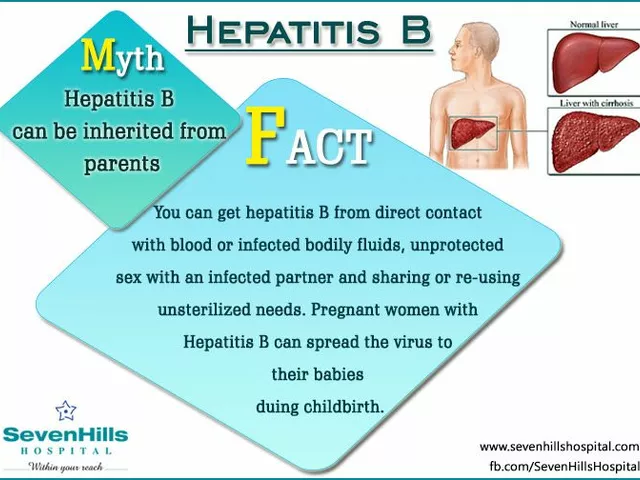Understanding Hepatitis B and its Chronic Nature
Before we delve into the role of antiviral therapy in managing chronic Hepatitis B, it's important to understand what exactly this disease is and how it turns chronic. Hepatitis B is a liver infection caused by the Hepatitis B virus, a highly contagious virus that can lead to severe liver complications. The infection can be acute or chronic. Acute Hepatitis B is a short-term illness that can turn into a chronic infection if the virus remains in the person's body for six months or more. This chronic condition can lead to liver damage, liver cancer, and even death.
The Importance of Antiviral Therapy in Chronic Hepatitis B
Antiviral therapy plays a critical role in managing chronic Hepatitis B. The primary goal of this treatment is to reduce the risk of complications, including cirrhosis and liver cancer. Antiviral drugs work by stopping or slowing down the virus from reproducing in the body, which helps to decrease the inflammation and scarring in the liver. It's crucial to remember that while these drugs can help manage the disease, they are not a cure. The virus can stay dormant in the body and can reactivate if treatment is stopped without medical advice.
Types of Antiviral Therapy for Chronic Hepatitis B
There are several types of antiviral drugs available for treating chronic Hepatitis B. The choice of therapy depends on various factors, including the stage of the disease, presence of other health conditions, and the patient's overall health. Some commonly used antiviral drugs include Entecavir, Tenofovir, and Lamivudine. These drugs, which are taken orally, are effective in suppressing the virus and slowing down the progression of the disease.
Monitoring Progress and Side Effects of Antiviral Therapy
While on antiviral therapy, regular monitoring is crucial to evaluate the effectiveness of the treatment and manage any potential side effects. Blood tests are often done to measure the level of the virus in the body and assess the health of the liver. Side effects of these antiviral drugs can vary from person to person, but they can include fatigue, headache, and nausea. In some cases, these drugs can also cause serious side effects like lactic acidosis and liver inflammation. Therefore, it's essential to communicate with your healthcare provider about any symptoms you may be experiencing.
The Future of Antiviral Therapy in Chronic Hepatitis B Management
Despite the advances in antiviral therapy, chronic Hepatitis B continues to be a significant global health challenge. However, researchers are optimistic about the future. New drugs are being developed that aim to cure the disease rather than just manage it. Moreover, there is an ongoing effort to create a therapeutic vaccine for those already infected with the virus. These advancements, combined with continued awareness and prevention efforts, hold the promise of a brighter future in the management of chronic Hepatitis B.








Iain Clarke July 6, 2023
The regular monitoring of viral load and liver function tests is essential when patients are on antiviral therapy. It allows clinicians to gauge treatment effectiveness and adjust regimens if needed. Patients should also be counselled about potential side effects like fatigue or mild nausea. Open communication with healthcare providers helps manage any adverse events promptly. Staying adherent to the prescribed schedule maximises the benefits of therapy.
Courtney Payton July 9, 2023
One must contemplate the ethical ramifications of relying on drugs that merely suppress a virus rather than eradicate it. It is a moral imperative to pursue curative research, not just palliative measures.
Muthukumaran Ramalingam July 11, 2023
So here's the thing, chronic hepatitis B is a real pain and the meds actually do something, you know? They stop the virus from making copies, which is good because less virus means less damage to the liver. The drugs like tenofovir or entecavir are taken once a day, so they're not that hard to remember. You still have to get your blood tested every few months, but that's part of the routine. Some people feel a bit tired or get a headache, but most get used to it after a while. The important part is you don't just stop the pills on your own, because the virus can bounce back like a rubber band. Also, you should talk to your doctor if you notice any weird symptoms, even if they seem minor. The doctors will check your ALT and AST levels, which tell you how the liver is doing. If those numbers go down, that's a sign the treatment is working. Some folks worry about long‑term side effects, and that's valid, but studies show that the benefits usually outweigh the risks. The newer antivirals have a better safety profile than older ones. Occasionally, there can be issues like kidney problems, so your doctor might do a urine test now and then. Overall, the goal is to keep the virus low enough that it doesn't cause cirrhosis or cancer. It's not a cure, but it's a way to live a healthier life. Many patients report feeling better after a year of stable treatment. The key is consistency and regular follow‑up. In short, antiviral therapy is a cornerstone in managing chronic hepatitis B, and sticking to the plan is what makes it work.
Garrett Williams July 14, 2023
Keep up the good work stay hopeful.
joba alex July 17, 2023
While the mainstream narrative lauds nucleos(t)ide analogues as the panacea for HBV, the pharmacokinetic nuances and resistance pathways are often glossed over. In practice, therapeutic inertia can mask suboptimal adherence, leading to virological breakthroughs that are misattributed to drug inefficacy. The discourse would benefit from a granular appraisal of genotype‑specific response rates rather than blanket endorsements.
Rene Lacey July 19, 2023
Consider the ontological dimension of disease management: we are not merely combating a pathogen, but also negotiating with the body's own regenerative capacities. Antiviral agents serve as mediators in this dialogue, attenuating viral replication while allowing hepatocytes to recover. Yet the philosophical tension remains-does suppression equate to stewardship, or is it merely a temporary truce? The answer lies in the longitudinal outcomes, where sustained virological response may herald a reconfiguration of the host‑virus equilibrium. Thus, therapeutic strategies must be both scientifically rigorous and conceptually reflective.
johnson mose July 22, 2023
Ah, the elegance of a well‑orchestrated treatment plan! Like a symphony, each dose of tenofovir or entecavir contributes a vital note, harmonising the liver's rhythm back to health. When the viral load wanes, it's as if the storm clouds part, revealing a bright, hopeful horizon. Yet we must remember the conductor's baton-regular labs and vigilant monitoring-to keep the melody on pitch. In this grand composition, patients and physicians are co‑authors, scripting a narrative where resilience triumphs over adversity.